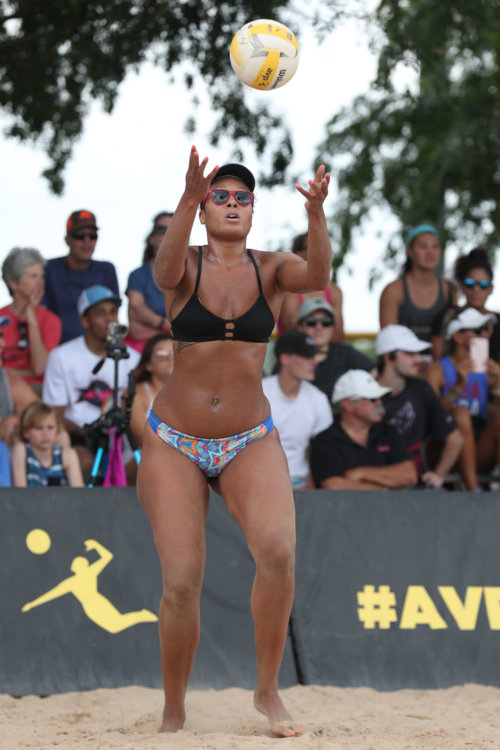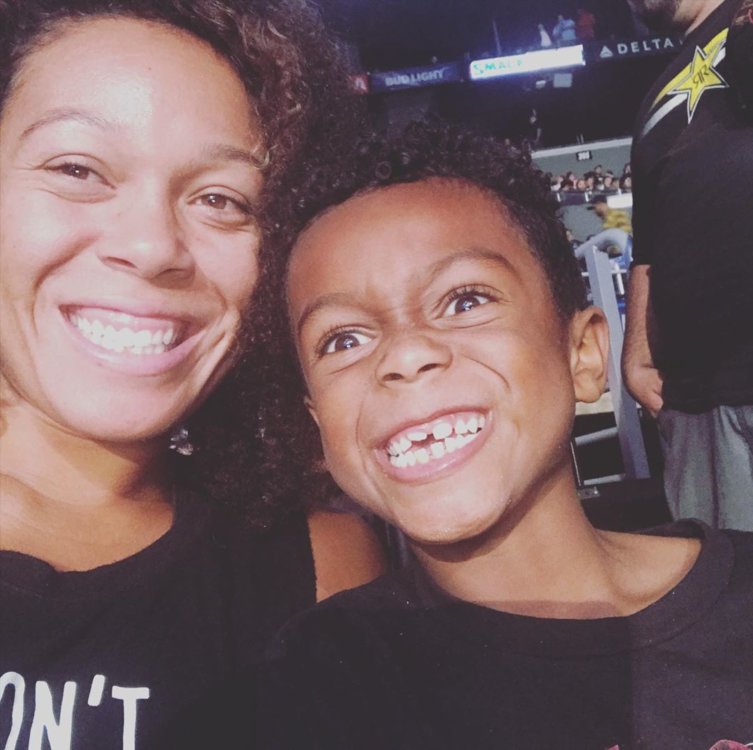 A couple of weeks ago, I began a conversation with Falyn Fonoimoana. We talked about expectations within the volleyball world due to her famous last name and her being one of the few Black athletes on tour.
A couple of weeks ago, I began a conversation with Falyn Fonoimoana. We talked about expectations within the volleyball world due to her famous last name and her being one of the few Black athletes on tour.
And naturally, our conversation continued to more than just Falyn’s personal struggles; we talked about our country’s current state, the complicated conversations she’s having, and parenting a young Black son amidst this tumultuous year and cultural climate. Falyn is supporting a heavy load, but she shoulders it proudly and often seems indefatigable.
But indefatigable is an unfair adjective to assume of someone. Through my discussions with Falyn and my own education journey this summer, I’ve realized that “Strong Black Women” is a trope because Black women have to be strong. They don’t have a choice. Life is hard for Black women, even more so for a mother of a son. But it doesn’t have to be this hard; and that is why Falyn is speaking out valiantly via social media and within safe spaces with close friends and family.
Since George Floyd’s death, Falyn has been one of my go-to social media accounts for education on the injustice and systemic racism in America. Her Instagram is filled with historical information, current events, and Black joy. There have also been difficult and personal posts, including Falyn’s encounter with racial discrimination at a local grocery store. When I saw it, I reached out to see how she was doing. Falyn replied with, “Just want people to realize that this happens in our community. Still.”
Her Instagram Stories are an unending flow of information and calls to action for her followers; she’s initiating tough conversations and not holding back, which I respect and admire. “I didn’t feel like I was going to be a huge activist,” she says. “I feel like I’m a teacher right now. But before [the teaching] happens, I had to go through a bunch of emotions that come with Black history and everything that’s currently happening.”

Via Instagram @FalynFonoimoana
After wrestling with her emotions and concluding that speaking out felt like the truest and best response, Falyn began advocating in all her various circles. The recipient closest to home and to Falyn’s heart is her son, Tavoi. “Our conversations haven’t changed,” she says, “but now that more injustices are happening on camera and in the forefront of the media, it’s just about being aware. My son is seven, so his attention span is too short to give him a history lesson every day. But since he was four years old, I’ve had hard conversations with him – like teaching him not to wear a hood because of the murder of Trayvon Martin. Also, don’t be too loud because when you get older and if you’re bigger than me with a loud, assertive voice, you’ll be looked at as a threat. I’m teaching him to use his words, not his fists. I want him to verbally protect himself, so I’m teaching him that his intellect is more important.”
In my last conversation with Falyn, we spoke about her experience with the people she grew up with, people she trusted whose comments and beliefs deeply hurt her. While those conversations have been arduous, they’ve opened Falyn’s eyes.
She’s more aware of actionable steps and intentions versus mere words on the internet. “The public is trying to show support,” she says, “but it’s like putting makeup on something super ugly and making it look cute. On the inside, it’s still ugly. There’s no foundation, nothing being worked on on the inside.”
Falyn also realizes this cultural movement may have an expiration date, that those with the privilege of being able to forget about racism may do so and leave their Black brothers and sisters to fight solo once again. “I think it’s a trendy thing,” she says. “Whenever there are trendy things, people jump on it. But will they continue to support and solicit change when it’s no longer ‘trendy?’”
Though Falyn is preparing for the worst, she’s optimistic. “I’m hoping this movement for justice stays strong. That people are held accountable and to a standard where they have to change. Black people aren’t trying to get vengeance and burn everything down to the ground. We want equality; we want change. Obviously, it’s great that people are posting and donating money and doing all these things, but where is that money going? What are we doing for the kids? Are we going to the areas where these things are happening and making a difference? That’s not happening yet. I hope more people step up, not just to educate but to take action. That’s what needs to happen.”
Falyn and I continued the conversation on said change, particularly in the sport of beach volleyball, both her own ideas and her hopes for AVP’s role in it.